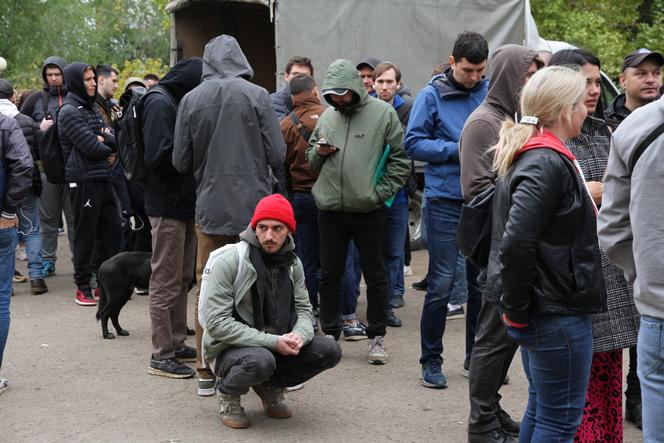

In Astana, he lives without a SIM card, a home or a bank account to his name. Oleg (first name changed for security reasons), who is in his 30s, was born inside the Russian Arctic Circle, "in a city where temperatures fall to between -50°C and -60°C in winter." This former Russian serviceman has lived in the capital of Kazakhstan since deserting the army at the end of 2022.

"I come from a poor family, in which the army is often the only way to survive. As soon as the war started in Ukraine, I was assigned to the hottest combat zones. It was a mess," he recalled. "I tried to resign many times, but to no avail. I didn't understand what the war was for. After six months, I took advantage of home leave and crossed the border into Kazakhstan in one day."
Like Oleg, more than a dozen soldiers are believed to be living in this Central Asian country in order to escape the hell of the war in Ukraine, according to the Kazakhstan International Bureau for Human Rights and Rule of Law (KIBHR), an independent NGO. The KIBHR has not ruled out the possibility that the number of these soldiers could, in actuality, be higher. Kazakhstan, which saw 400,000 Russians arrive in 2022 after partial mobilization, has rapidly become a preferred destination for deserters and those opposed to the Russian government: A passport, which Russian soldiers rarely possess, is not necessary to enter this former Soviet republic, where Russian is widely spoken and the cost of living is affordable.
But crossing the border from Russia into neighboring Kazakhstan is no longer a guarantee of safety. Kazakhstan is dependent on a mutual legal assistance agreement with Russia, allowing the detention of anyone wanted by Moscow for committing a crime – including deserting the army – under Article 338 of the Russian Criminal Code. Over the past two years, five arrests have already been made, forcing deserters to be discreet – or even invisible, taking day labor jobs that pay under the table and not using bank cards. To date, however, none of them has been extradited by the Kazakh authorities, as "the crime of desertion does not appear in the Kazakh Criminal Code as a reasonable ground for extraditing a person," said Denis Djivaga, a lawyer with the KIBHR. Nevertheless, Oleg remains on his guard. He said he had even been "more tense than usual" since the arrest of Kamil Kasimov on April 23.
Originally from Buryatia (a region not far from Mongolia), this 23-year-old Russian military officer fled to the Kazakh capital in June 2023. Arrested and then released by local police, "he is currently in Priozersk, a Russian base in Kazakhstan," said his lawyer, Artur Alkhastov. "Everything leads us to believe that he has been illegally abducted: He was seized by Russian officers at his place of work, even though the address does not appear in any database." "Potentially, other deserters were taken" to this base on the shores of Lake Balkhash, "before being sent back to Russia," added Alkhastov.
You have 43.69% of this article left to read. The rest is for subscribers only.
